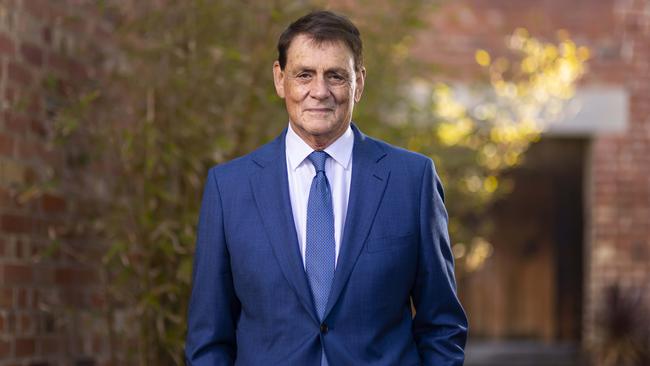Watch for a bigger hike in June, predicts Westpac’s Bill Evans
Westpac’s chief economist expects the RBA to ‘front load’ its tightening cycle to get inflation back to within its target range.

The Reserve Bank may “front load” its tightening cycle to get inflation back to within its target range by mid-2024, with a near double-sized rate hike now on the cards for June, Westpac chief economist Bill Evans has warned.
The central bank on Tuesday lifted the cash rate for the first time in more than a decade, pulling the trigger on a greater-than-expected 25 basis point rise to curb spiralling inflation.
The market had anticipated a softer 15 basis point lift-off. Instead, it was a “business as usual” hike, a move Mr Evans said signalled that “increments of 25 basis points might be considered the base case”.
“We are not convinced that the next move will be 25 basis points,” he said, instead tipping a 40 basis point hike at the June meeting.
The trigger point for the RBA to move harder than expected is the inflation outlook: underlying inflation, currently at 3.7 per cent, is now forecast to reach 4.75 per cent by the end of this year compared to the 2.75 per cent the central bank was tipping earlier this year.
Labelling the revised inflation forecast a “staggering uplift”, Mr Evans warned of the steeper rate hike cycle to come.
“A larger increase in the cash rate than 25 basis points is likely to be seen by the board as necessary to convince agents that it is serious about the challenge and to accelerate the unwinding of the emergency measures that saw 65 basis points of rate cuts in 2020.
“We have chosen 40 basis points rather than 50 basis points purely because we expect that “business as usual” is increments of 25 basis points on a base of multiples of 25 basis points (in line with the practices of most other central banks).”
Aside from the larger-than-normal hike in June, Westpac is tipping rate increases of 25 basis points in July, August, October and November, bringing the official cash rate to 175 basis points by year’s end.
“That will be a level where the household balance sheet will come under some strain and the subsequent movements by the board will be much more cautious – one hike of 25 basis points in February and another in May,” Mr Evans predicted.



